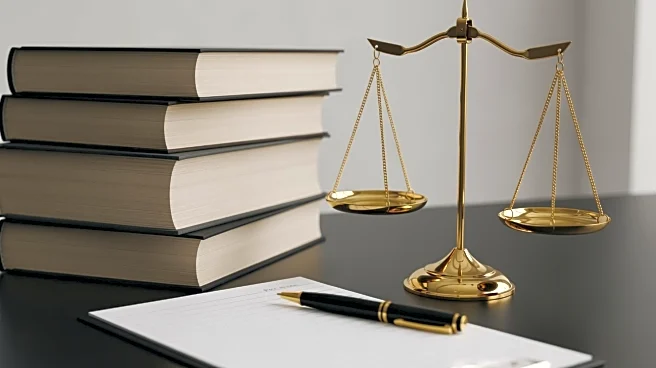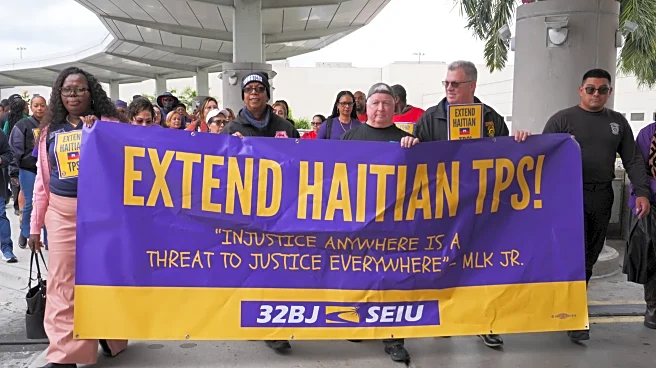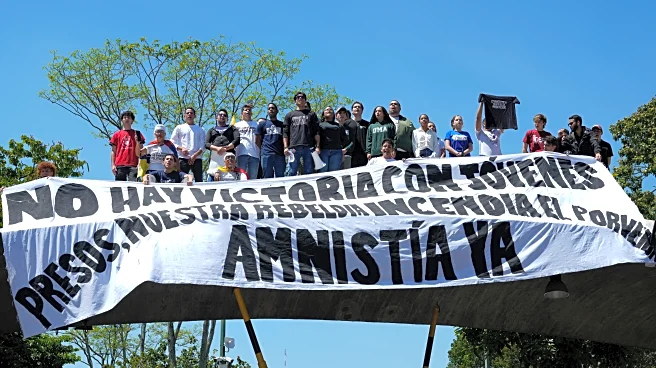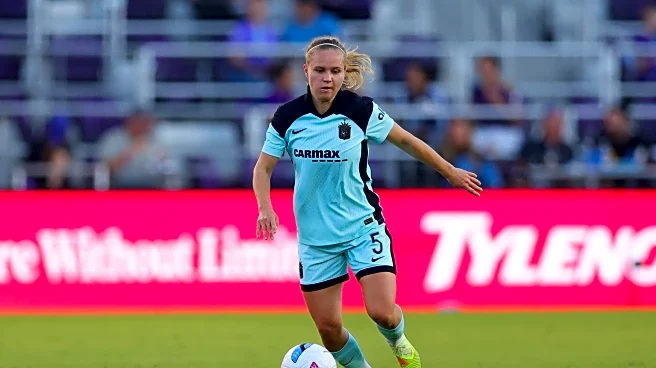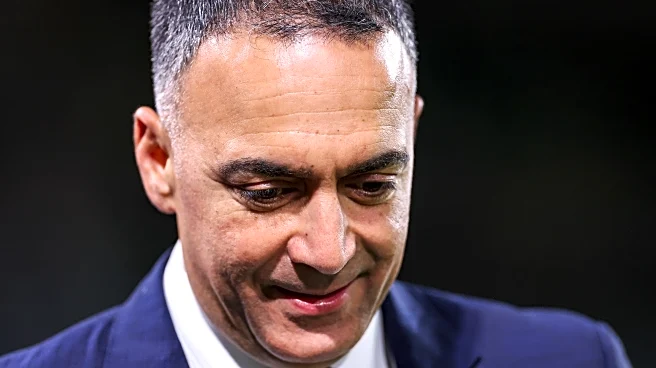What's Happening?
Kim Kardashian is on the verge of discovering whether she has passed the bar exam after six years of studying law. The reality TV star, known for her work in criminal justice reform, has been pursuing a legal career through an apprenticeship program in California.
Kardashian has expressed her interest in criminal justice over family law, citing her involvement in high-profile cases such as lobbying for clemency for Alice Marie Johnson. Her legal journey began in 2018, and she completed her apprenticeship in May. Kardashian's legal aspirations are part of a family legacy, as her father, Robert Kardashian, was an attorney involved in the OJ Simpson trial.
Why It's Important?
Kim Kardashian's pursuit of a legal career highlights the growing trend of celebrities engaging in social justice and reform efforts. Her focus on criminal justice reform has brought attention to issues such as mandatory minimum sentences and clemency for non-violent offenders. Kardashian's influence and platform could potentially drive public interest and policy changes in the U.S. legal system. Her involvement in legal matters also underscores the importance of alternative pathways to legal education, as she opted for an apprenticeship rather than traditional law school.
What's Next?
If Kardashian passes the bar exam, she may continue her advocacy work in criminal justice reform, potentially taking on more cases and influencing policy changes. Her role in the legal field could inspire other public figures to engage in similar efforts. Additionally, her upcoming role in the series 'All's Fair' may further amplify her legal interests and public engagement. The results of her bar exam will determine her next steps in her legal career and advocacy work.
Beyond the Headlines
Kardashian's legal journey reflects broader cultural shifts where celebrities leverage their influence for social change. Her focus on criminal justice reform aligns with ongoing discussions about the U.S. legal system's approach to non-violent offenses and sentencing. This development may contribute to a larger conversation about the role of public figures in shaping policy and advocating for marginalized communities.
